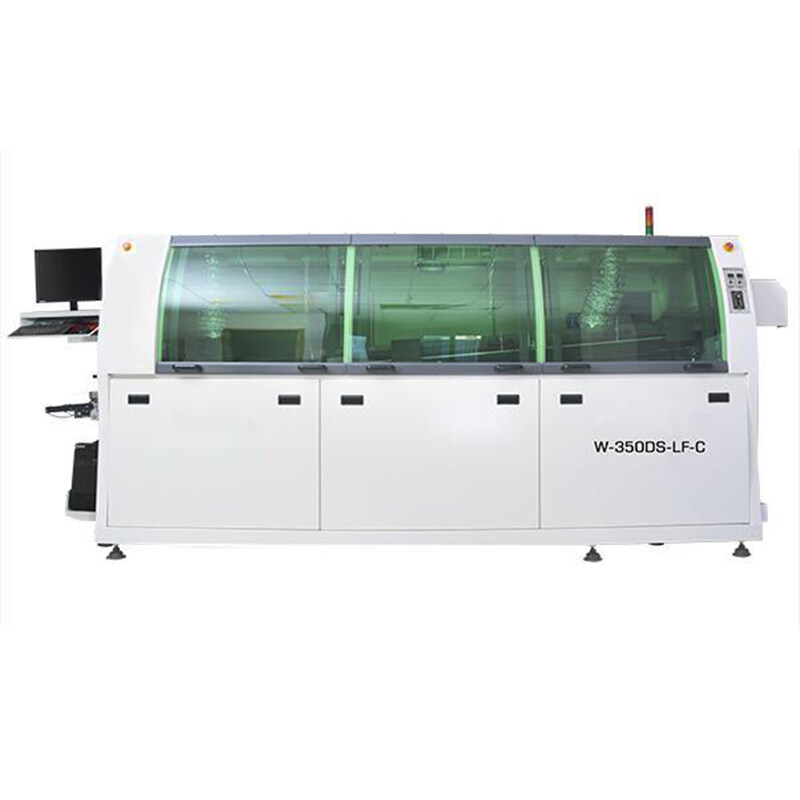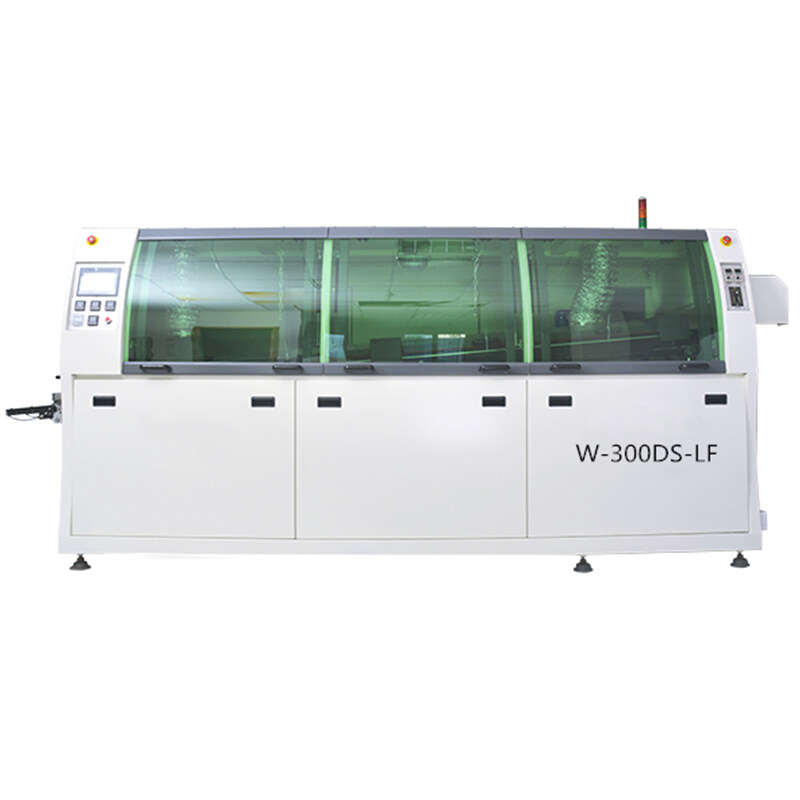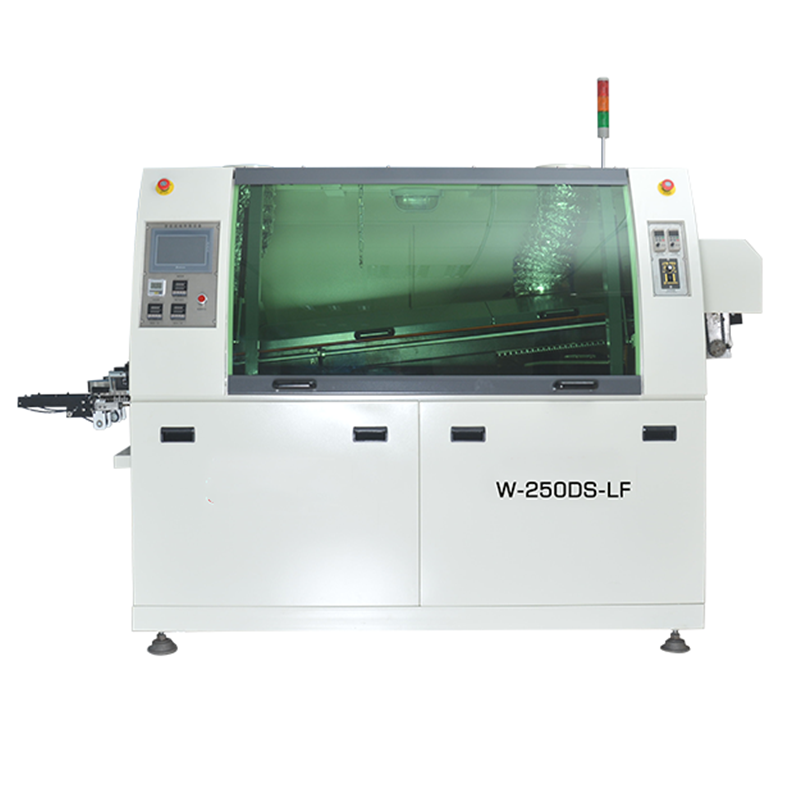Error de formato de correo electrónico
emailCannotEmpty
emailDoesExist
pwdLetterLimtTip
inconsistentPwd
pwdLetterLimtTip
inconsistentPwd

Wave-Soldering Machine
Wave-Soldering Machine
(3)Wave-soldering machines are used in the electronics manufacturing industry for attaching electronic components to printed circuit boards. This process is particularly useful for through-hole components that require a high level of stability and mechanical strength. The wave-soldering process and reflow-soldering process are two different techniques used in electronic manufacturing for soldering electronic components to printed circuit boards.
Difference between wave-soldering process and reflow-soldering process:
The main difference between these two processes lies in the way that the solder is applied to the components.
The reflow-soldering process is used for surface mount components, which are attached to the surface of the circuit board. In this process, the solder is pre-applied to the surface of the circuit board in the form of a paste. The components are then placed on the board and the entire assembly is passed through a reflow oven. The oven heats the assembly to a temperature range of 200 to 260 degrees Celsius, melting the solder paste and forming a bond between the components and the board.
On the other hand, the wave-soldering process is used for through-hole components, which require a more robust connection to the circuit board. In this process, a solder wave is used to flow over the circuit board, melting the solder and forming a bond between the components and the board. The circuit board is held in place while it passes over a wave of molten solder that is heated to a temperature range of 240 to 260 degrees Celsius. The wave is created by pumping molten solder through a nozzle and then passing it over a series of baffles, creating a turbulent wave. This wave is then allowed to pass over the circuit board, which is held at a specific angle to ensure complete coverage.
The key difference between these two processes is the method of applying the solder. In reflow-soldering, the solder is pre-applied to the board in the form of a paste, while in wave-soldering, the solder is applied using a wave of molten solder. Reflow-soldering is generally used for surface mount components, while wave-soldering is used for through-hole components that require a stronger and more reliable bond to the board.
In conclusion, both the reflow-soldering process and wave-soldering process are important techniques in electronic manufacturing, and they are used for different types of components. Understanding the differences between these two processes is important for choosing the right soldering technique for a given application.
Compare with other soldering techniques:
Wave-soldering machines offer several benefits over other soldering techniques. For instance, they provide a more robust connection between the components and the board, which is particularly important for high-stress applications. The process is also fast and can handle large volumes of circuit boards at a time, making it a cost-effective solution for high-volume manufacturing. Furthermore, wave-soldering machines can be easily adjusted to accommodate different types of circuit boards and components. This makes them versatile and useful for a wide range of electronic manufacturing applications.
HCT is one of the most professional Wave Soldering Machine manufacturers and suppliers in China. Top quality, great selection, and expert instruction are our main advantages. Welcome to wholesale the Wave Soldering Machine from us.
Lead-Free Double-Wave Computer-Controlled Soldering System
Internally modular and with a streamline architecture, it can solder SMT and DIP components without using lead. In order to stop the soldering flux from dripping onto the PCB, the spraying system uses a centrifugal fan to collect air. Sensor for the soldering flux buffer tank is external, more dependable, and robust.
Economic Lead-free Double-Wave Soldering Machine
Effective, energy-saving, environmentally friendly, lead-free, safe, and brand-new design, with easy operation and convenient maintenance. Automatic board input, automatic power system, and automatic frequency converter control. Flux spray system with accurate and dependable PLC control, scanning spray nozzle, Japanese nozzles, and rodless pneumatic cylinders.
Small Lead-Free Double-Wave Soldering Oven
Flux spray system with accurate and dependable PLC control, scanning spray nozzle, Japanese nozzles, and rodless pneumatic cylinders. With non-level frequency conversing speed adjustment and auto-synchronous board feeding features, the conveying power system is automatic. The preheating system uses remote infrared ceramic heating pipes, which guarantees a good heat preservation effect, a quick heating up time, and an even temperature.




